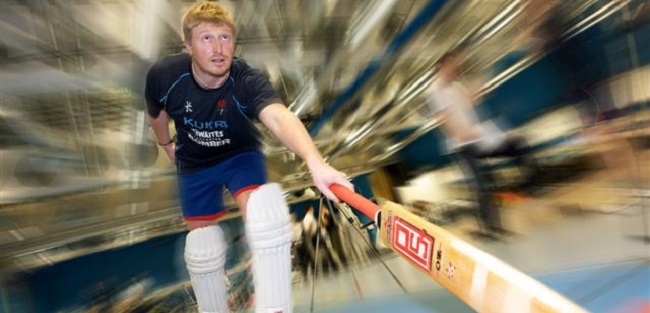Pupils at Gaskell Primary in Bolton last week enjoyed five days of scientific adventures. In order to get in on the National Science Week action, the school’s teachers organised a series of events and workshops for the children, according to The Bolton News.
Space, the final frontier. These are the voyages of... well pupils from my school, I hope! Our pupils and perhaps ‘our own personal children’, as I call my sons, could possibly be travelling up to space in their latter years. It’s something that is becoming agility, core strength, stamina and dexterity. The mission activities are planned weekly at school and work well with year 5 pupils, as it is part of their science curriculum and the PE element forms part of their requirements for the term.
The BBC has launched a new project in order to boost digital skills amongst British secondary school students. The corporation will be giving away one million Micro Bit mini-computers as part of the Make It Digital campaign to all 11-year-old pupils starting secondary school in the autumn term. The initiative will also include a season of coding-based programmes and activities.
The kids we teach in our classrooms today are undoubtedly ‘digital natives’. Born in an age of established technology, the latest generation of students have grown up with clever gadgets and devices, leading to today’s youth having an unrivalled passion and understanding for the digital world. Research suggests that three quarters of children now use the internet at home, and nearly all use it at school, with around 41 percent of 9 to 19 year olds having access to the web each and every day. At a time when the traditional textbook is being phased out in favour of technology, it’s time for teachers to adapt their methods of delivering information to meet the contemporary needs of children growing up in the digital age.
With a plethora of edtech available to schools, it’s a great time to be studying Science. However, much of this learning risks being wasted if kids can’t apply it to real life, everyday examples. BPES are offering a variety of free resources to tackle this.

The BP Educational Service (BPES) is taking science out of the lab and into the real world with ‘Where's the Science in that?’, a set of new free resources for students aged 9 to 14. These resources have been designed to fit closely with the new National Curriculum for England. They also support the curricula for Scotland, Wales and Northern Ireland. The focus is on inspiring young people to see science in a new light. The interactive teaching resources are compatible with whiteboards, PCs, iPad and Android tablets.
According to a recent BBC news article, business leaders have said a growing shortage of skills in the hi-tech sector is threatening Britain's economic recovery. Graduates in science, technology, engineering and maths (STEM) are vital in order to tackle the current skills shortage in the UK and ensure the future prosperity of our country. Interestingly, however, the findings of a survey by YouGov revealed that the majority of children enjoy science as a subject. This should be encouraged from primary level, and schools need to continue to make science appealing to students as they progress through compulsory education, to encourage a higher level of interest in science-related careers.
Robotics are fun and interesting, but how can a school go about implementing them into their school? Restech’s Zan Nadeem gives her top tips on the topic.

The changes to the curriculum, although daunting in some ways, are hugely exciting. Most people, kids and adults, have a love for making things. The power to create/ and the joy from finishing a self conceived model, drawing, cake, knitted jumper etc, is indescribable. To be able to understand how to make the devices, devices that we use everyday, and how they are programmed is incredible and hugely appealing for many students. This is why robotics projects for students, and robots for schools, are proving to be so popular.
A lot of pupils are going to be enthused by STEM (science, technology, engineering and mathematics) subjects, and plenty of teachers like to run clubs around them. STEMNET’s Lisa Thompson gives her top tips on how to get a great STEM club running.

Many teachers would love to run an after school club with a handful of enthusiastic students where they get to explore all the fun things they just don’t have time for in the curriculum. The problem is many teachers just don’t know where to start. There is a dizzying array of enrichment opportunities with relatively low uptake from schools because many teachers are just too busy to engage with them, or never even hear about them in the first place! So here are my top tips for setting up a club and maintaining it throughout the year:
Modern edtech advancements are getting lots of use in STEM subjects, as well as the likes of English and the performing arts, but how is PE getting the most out of this technology? Brian Bennett, a teacher turned academic customer solutions engineer at TechSmith, discusses how video tutorials are being used alongside the whistle.

Keeping students engaged during lesson time is one of the greatest and oldest challenges for any educator. To boost student motivation and engagement, teaching methods are having to evolve and move away from traditional approaches within the classroom. One notable development has been the introduction of technology. Most subjects are incorporating digital resources in order to harness young people’s interest in technology. For example, physical education classes are incorporating mobile technology as a means of improving class involvement and enthusiasm.
The science lab is an exciting place for students, so why not make the most of this with the latest edtech on the market? Primary education specialist Maggie Morrissey advises teachers how best to make science classes as lively as possible.
[As seen in the February 2014 edition of our magazine]

Throughout my teaching career I have enjoyed using technology in education, especially in science lessons. As an ICT coordinator I introduced teachers, teaching assistants and children to a variety of digital resources such as data loggers, digital microscopes and simulations to help support the teaching of science.

A community-driven platform for showcasing the latest innovations and voices in schools
Pioneer House
North Road
Ellesmere Port
CH65 1AD
United Kingdom